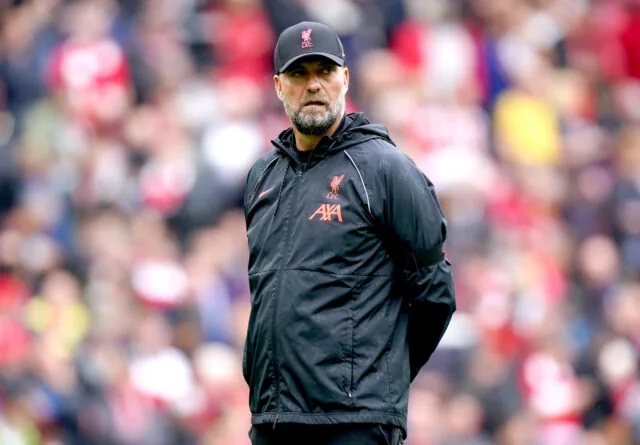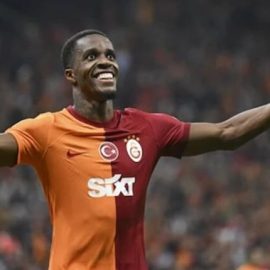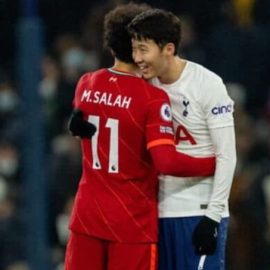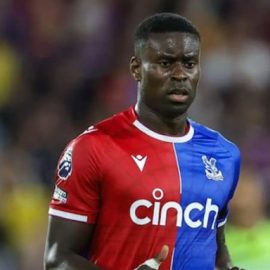In the last 15 to 20 years the best central midfielder that I have seen — the most complete — is Scholes. I have spoken with Xabi Alonso about this many times. Scholes is a spectacular player who has everything. He can play the final pass, he can score, he is strong, he never gets knocked off the ball and he doesn’t give possession away. If he had been Spanish then maybe he would have been valued more.”
– Xavi
Why isn’t he playing for England? It is crazy. Only in England.
– Jose Mourinho
Look at that picture. He was never an oil painting, was he? And maybe that’s part of the problem. Nature made sure Paul Scholes was never going to be appreciated for his looks, and nurture on the Langley council estates near Manchester made sure he saw past self promotion and the need for fame. Celebrity culture was starting to ooze into English football in the years leading up to his emergence in 1995, with Lee Sharpe, Ryan Giggs and the Anfield spice boys already dating half-assed models and appearing in tabloids. But Scholes came up at Old Trafford with David Beckham, who was going to take things to a whole other level. Still, in the middle of the increasing whirlwind surrounding the game, Scholes remained grounded, was straight into the car after training, heading home to be with his wife and kids.
But enough of that. I don’t want this to be another tribute to Scholes’s normalcy, as if, 1) that was his most admirable feature, and 2) a man deserves to be admired for not turning into Jordan. Almost all the tributes written since he announced his retirement have focussed on that side of him, and it’s been significant and saddening that even now that he’s gone, the country he was born into still has no idea what a talent they had.
It’s my belief that Paul Scholes is, immeasurably, the greatest English footballer of the Premiership era, yet probably not a huge amount of people from his own country would hold the same opinion, and certainly not as strongly.
Get this for an example of what I’m talking about: Andres Iniesta swapped shirts with Scholes at the end of the Champions League final last weekend and Henry Winter, in his Times tribute, felt the need to blurt, “What a souvenir!” As if Scholes should be in awe of receiving such a gift. Iniesta, of course, would have other ideas. He comes from a country that understands a midfielder’s job.
Carles Folguera, the director of the Barcelona youth academy, talked this week about the Catalan club’s ideas for developing youth. “The physical aspect is not so important compared with the ability to take decisions…technique, capacity for anticipation.” Things couldn’t be more different in the UK. In fact, Folguera believes that in the Premiership, where “physical prowess takes priority…Iniesta, Pedro, Messi or Xavi would not have had any chance of making it to the top.”
A remarkable idea, and one backed up by the fact that the one English player comparable (if not superior) to those players, was appreciated more around the world than in his own back yard. Scholes was an alien in a British football culture in love with headless chickens. Frank Lampard and Steven Gerrard – both wonderful footballers in the final third of the pitch – were always celebrated above him, despite neither being able to do the essential job of a midfielder: controlling a game.
Scholes was different. Nani, his Portuguese teammate, spoke in January of watching him in training: “He makes a pass to one wing, goes to support and gets the ball. Then he makes a pass to the other wing, goes to support and gets the ball again. All the time he’s in control of the play. He’s the best midfielder I’ve ever seen.”
English football is chock full of midfielders who can crash into a tackle; even more who can hide from the ball in a “holding role” (hello Michael Carrick); and even a few who can score fifteen goals a season and whack a ball in from twenty yards out. Scholes, except for his old school leg-rakers, was subtler, and hence easier to underrate: all he did was have the courage to always want to take the ball, always turn on it, then look at the pitch and instantly decide the right thing to do. He had the bravery, desire and technique to control a game.
That’s a midfielder’s job. The rest is just noise.
Still, you’d assume that Scholes doesn’t care that he never got the credit (though you’d imagine being shunted onto the left wing for “Stevie G” and “Lamps” still rankles with him), so I should probably lighten up. You can’t imagine him bothering to read any of the tributes this week, cutting them out and gluing them into the Scholesy scrapbook. Can you even picture him having a testimonial? I can’t.
Of course, all the recent words, including mine, are nothing next to the quotes from his peers all over the internet. For anyone interested, it’ll take thirty seconds on Google, and if you want to disagree with the opinions of Zinedine Zidane, Marcello Lippi, Pep Guardiola, Luis Figo, or Cesc Fabregas, that he wasn’t that great, then have at it.
When news of his retirement broke on Tuesday, Bobby Charlton said a wonderfully sad thing about his fellow United legend, that all he could think of was “what an absolute tragedy (it is) that we have to be without him – he is such a fantastic player, a beautiful player to watch.” My thoughts are the same. I feel privileged to have seen him play and terribly sad that I won’t again.
Oh, and if anyone writes, “Yeah, but he couldn’t tackle” in the comments below, I’ll scream.
Add Sportslens to your Google News Feed!







